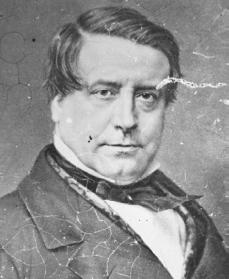Learning Outcomes
1. History
My historical Period was the 20th century and I loved it. My assigned reading was about progressivism, and again, I was extremely interested. I real enjoy learning about societal changes and how our focus and a nation changes over time in relation to politics.
2. Digital Concepts
Of all of the digital concepts, I have certainly most enjoyed learning about participation. I am so interested in how participation is changing and working in this social media world, and how we monitor and denote success through this participation. Over this semester, I know that i have certainly participated more than I ever have, not just though my blog, but through Google+ and all kinds of news sources. I have loved being able to use Google+ as a more academic social sphere, and have appreciated being able to share what i find interesting even more than talking about it myself.
3. Digital Literacy
- Consume- I have certainly consumed a huge amount of varied information this semester. I have been able to see so many sides of so many arguments. One that comes to mind is privacy. I have posted a few times about how much we know and how much the proverbial "they" know about us.
- Create- Creating all of these blog posts has certainly been a change in my normal schooling paradigm, but I think that the creating I am most interested in of this semester has been the creation of dialogue. I have loved being able to give and reticence feedback through Google+ and the others in class. My favorite posts are the ones that received the most comments. Creating the event was also a fun and intensive part of my class experience. Planning a function based on the core values of the class made me really think about each of them.
- The New Vote
- NY TImes Article on prescription drugs
- My Focus: Participation
- Does Equality Dumb us Down?
- Connect- Perhaps I touched on this in the section above. Connecting with other students and with others around the world has been a huge bonus to this class. I have a lot more confidence now to join in conversations on the internet and am more willing to say what I think.
4. Self-Directed Learning
I feel as though this whole semester I have been teaching myself. At first it was to keep my head above water, but now I find that I really do enjoy it. I appreciate being able to say, hey, I want to know more about this, and being able to do it. I love learning from those who probably have very different opinions than I have. Mother Jones, for example, is an extremely liberal on-line magazine, but I love it because it makes me think.
5. Collaboration
Oh boy, did I collaborate. The historical and digital group presentations were all about collaboration, and working so closely with a ton of people on the event was certainly the most collaborating I have ever done. We all had to work closely together to accomplish very large goals, and I truly believe that this is one learning outcome that was hit right on the head for everyone in the class. We accomplished amazing things, and I am glad that I was able to be a part of that learning process.
This class was crazy and slightly unorganized and moderately petrifying, but we did it. I am proud of what I accomplished, not just as a whole with a successful event and an e-book on the way, but as an individual with a broader outlook on my role as a digital citizen.
















